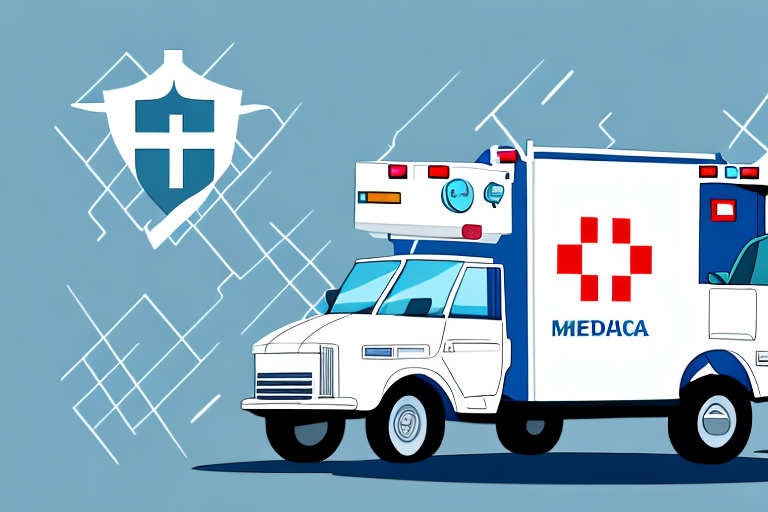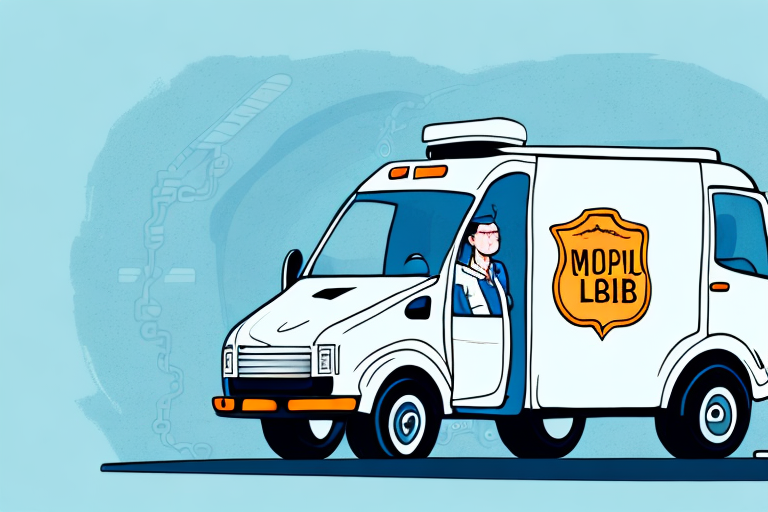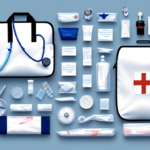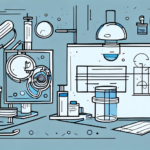Introduction to Medical Courier Independent Contracting
If you're seeking a flexible and rewarding career that allows you to make a tangible difference in people's lives, becoming a medical courier independent contractor might be the perfect fit for you. Medical couriers are entrusted with delivering critical and sensitive materials, such as lab samples, medications, and medical equipment, to hospitals, clinics, and patients' homes. This role not only supports the smooth operation of healthcare facilities but also directly contributes to patient care and well-being.
Benefits of Being a Medical Courier Independent Contractor
One of the primary advantages of this career is the flexibility it offers. As an independent contractor, you have the autonomy to choose your hours, rates, and clients, allowing you to balance work with personal responsibilities or other interests. Additionally, the demand for medical couriers remains high, especially in rural or underserved areas, ensuring a steady stream of work and opportunities to build long-term relationships with healthcare providers and patients.
Flexible Schedule
Set your own working hours to accommodate other commitments or to work full-time, part-time, or on an as-needed basis.
High Demand and Steady Work
The healthcare industry's growth, coupled with the rise of telemedicine, has increased the need for reliable medical couriers. According to the U.S. Bureau of Labor Statistics, employment in the courier and messenger services sector is projected to grow steadily in the coming years.
Meaningful Impact
Contributing to the delivery of essential medical supplies and services provides a sense of fulfillment, knowing that your work directly supports patient care and the healthcare system.
Getting Started: Requirements and Qualifications
To embark on a career as a medical courier independent contractor, certain prerequisites must be met:
Educational Background
A high school diploma or GED is typically required. Some employers may prefer candidates with additional education or certifications in healthcare or logistics.
Licensing and Documentation
- Valid Driver's License: A current and valid driver's license is essential.
- Clean Driving Record: Employers often require a clean driving history to ensure safety and reliability.
- Reliable Vehicle: A dependable vehicle that meets specific criteria, including insurance coverage and safety standards.
Additional Certifications
While not always mandatory, obtaining certifications related to healthcare logistics or handling sensitive materials can enhance your employability and credibility.
Roles, Responsibilities, and Essential Skills
Medical couriers play a critical role in the healthcare ecosystem. Understanding the core responsibilities and developing essential skills are key to success in this field.
Core Responsibilities
- Secure Transportation: Safely transporting medical samples, medications, and equipment to designated locations.
- Timely Deliveries: Ensuring that all deliveries are made promptly to support patient care and operational efficiency.
- Compliance: Adhering to all safety and confidentiality guidelines, including HIPAA regulations.
Essential Skills
- Time Management: Effectively planning routes and schedules to maximize efficiency.
- Attention to Detail: Ensuring all materials are correctly labeled, packaged, and handled.
- Communication: Maintaining clear and professional interactions with clients, healthcare providers, and patients.
- Problem-Solving: Addressing and resolving any issues that may arise during deliveries.
Finding and Marketing Your Services
Securing consistent work as an independent contractor requires proactive efforts in finding jobs and marketing your services.
Networking with Healthcare Providers
Establish connections with hospitals, clinics, labs, and other healthcare facilities. Building strong relationships can lead to repeat business and referrals.
Online Presence
Create a professional website and maintain active profiles on social media platforms. Highlight your services, experience, and testimonials to attract potential clients.
Joining Medical Courier Platforms
Platforms like ShipScience connect independent contractors with healthcare providers in need of courier services.
Utilizing Job Boards and Freelance Platforms
Leverage online job boards such as Indeed, Upwork, and Craigslist to find freelance opportunities.
Managing Your Business: Time, Rates, and Legal Considerations
Effective business management is crucial for the sustainability and profitability of your medical courier services.
Time Management
Develop a structured schedule that accounts for travel time, delivery windows, and potential delays. Utilize time-tracking tools and route optimization apps to enhance efficiency.
Setting Your Rates
Determine competitive rates based on factors such as delivery distance, urgency, and the type of materials transported. Consider operating costs like fuel, insurance, and equipment when setting your prices.
Legal Considerations
- Business Licensing: Obtain the necessary licenses to operate legally in your state or region.
- Insurance: Secure adequate insurance coverage to protect against liabilities, accidents, or theft.
- Compliance with Regulations: Adhere to laws and regulations governing the transportation of medical materials, including HIPAA compliance.
Safety Considerations and Risk Mitigation
Handling sensitive medical materials requires strict adherence to safety protocols to protect both yourself and the integrity of the materials.
Proper Handling and Storage
Use appropriate containers and cooling systems for materials that require temperature control. Ensure all packages are securely labeled and sealed.
Protective Gear
Wear necessary protective equipment, such as gloves and masks, especially when handling biohazardous materials.
Traffic and Road Safety
Follow all traffic laws and drive safely to minimize the risk of accidents. Stay informed about weather conditions and adjust your driving accordingly.
Emergency Preparedness
Have a plan in place for potential emergencies, such as accidents or adverse weather. Carry essential insurance and contact information for support services.
Future Trends in the Medical Courier Industry
The medical courier industry is evolving rapidly, influenced by technological advancements and changing healthcare needs.
Technological Innovations
The adoption of drones and autonomous vehicles promises to revolutionize delivery methods, offering faster and more efficient solutions.
Growth of Telemedicine
The rise of telemedicine has increased the demand for prompt and reliable delivery of medical supplies, samples, and equipment to support remote healthcare services.
Specialized Services
There is a growing market for specialized courier services tailored to niche areas such as home health care, personalized medicine, and specialty pharmaceuticals.
Increased Competition
As the industry grows, so does competition from larger courier companies and digital platforms. Independent contractors must differentiate themselves through exceptional service and specialization.
Conclusion
Becoming a medical courier independent contractor offers a unique and fulfilling opportunity to contribute to the healthcare system while enjoying the benefits of entrepreneurship. By understanding the requirements, developing essential skills, and effectively managing your business, you can build a successful career in this vital industry. Stay informed about industry trends and continuously strive to improve your services to meet the evolving needs of healthcare providers and patients alike.








